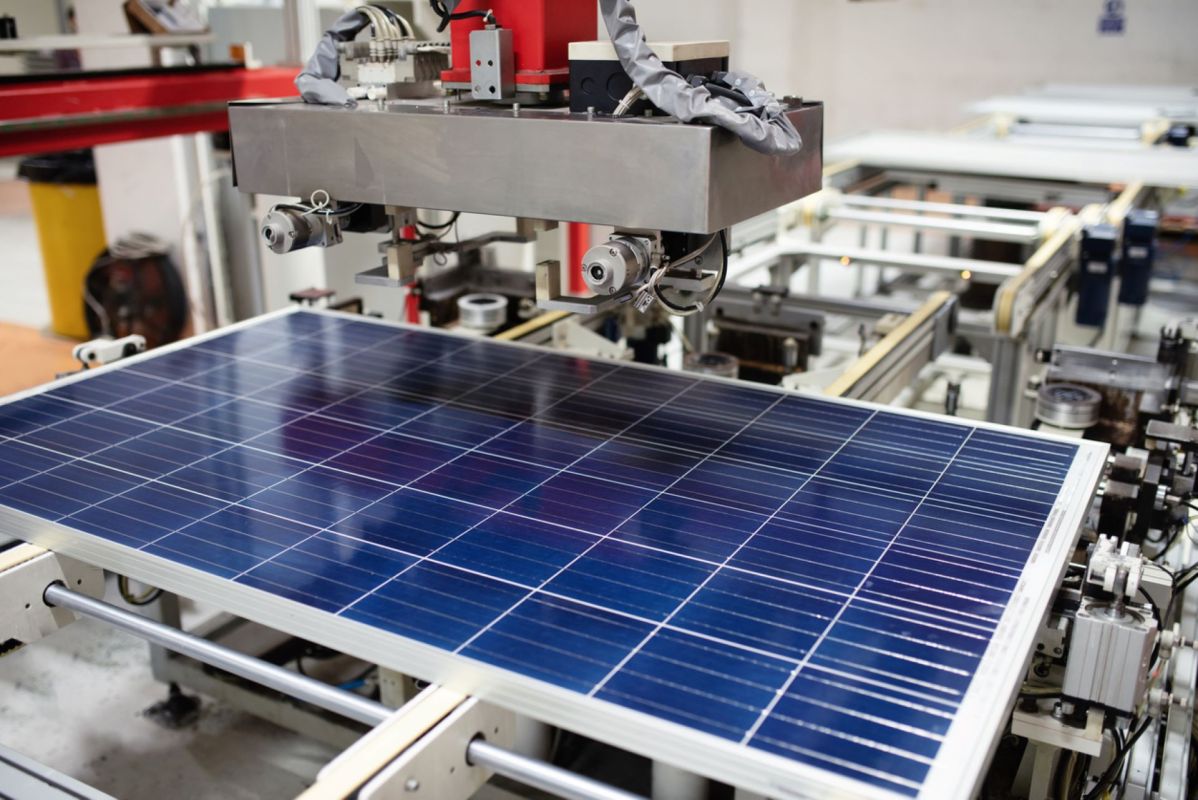A Japanese company is using a new type of solar cell as the country tries to shake up the China-dominated photovoltaic market.
EneCoat Technologies has been working with a thin, flexible film made from minerals that form a structure known as perovskite.
The crystalline material can convert light into energy. While it was previously deemed less efficient than silicon — which is typically used in solar panels — and more vulnerable to water, improvements in recent years have allowed it to bring some serious benefits in terms of renewable energy generation.
🗣️ Should American companies be doing more to compete with China on clean energy?
🔘 YES 👍
🔘 NO 👎
🗳️ Click your choice to see results and speak your mind
According to the Wall Street Journal, cited by The Messenger, perovskite can allow for flexible and lightweight solar products that can produce power indoors and in low-light conditions.
EneCoat hopes to begin commercial production of perovskite technology by the end of 2024. Meanwhile, Japan has allocated $400 million to encourage companies to make more perovskite solar options, The Messenger reported.
"We want to start off by aiming for places where silicon panels can't be used," EneCoat's chief technology officer Tamotsu Horiuchi told the Wall Street Journal, per The Messenger. "We think that there's a bigger market there."
According to the International Energy Agency, China's global share of the solar photovoltaic supply chain exceeds 80%, while its investment in the technology since 2011 is 10 times more than Europe's.
Researchers at Princeton University in New Jersey have been leading the way in perovskite development, noting the "miracle material" can be produced at significantly lower temperatures than silicon, which makes it more energy efficient even at the development stage.
In early tests, the lifespan of perovskite was one reason for a lack of faith in its potential, but a perovskite cell has proved it can last even longer than the 30 years a typical silicon cell can perform efficiently.
Perovskite has broken a world record in terms of efficiency when combined with silicon, with researchers from the Technical University Berlin achieving a peak performance of 29.15% — higher than the previous record of 28%, according to The Independent.
The combination of materials could be the next area to explore to make the most of the sun's energy to create clean, pollution-free power.
As Energy Monitor reported, Japan's presence in the sector has been held back by a lack of silicon supply, but focusing on perovskite products could propel the nation past China and the United States.
Japan has turned its focus to non-nuclear energy following the 2011 Fukushima power plant disaster, and solar PV has been the main focus of attention.
Global Data put the nation's megawatt capacity of solar energy as close to that of the total gas supply, while it's expected to far outstrip gas and other renewable and dirty fuel alternatives by 2035.
Join our free newsletter for weekly updates on the coolest innovations improving our lives and saving our planet.









